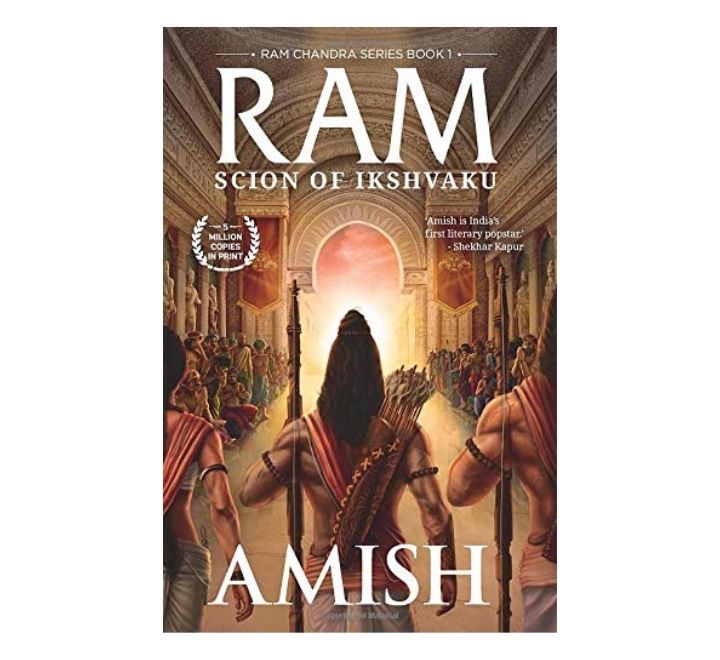Book Review-Ram, Scion of Ikshvaku

Book Review: Varshini from Team Pravaah
Book Title: Ram, Scion of Ikshvaku
Author: Amish Tripathi
One of the glamorous books I read. I feel fortunate for living in the same era as Amish ji. He is a gem; how can someone so miraculously bring in novelty in something that everyone already knows about ?! Having said that, this Ramchandra series is different from the Shiva trilogy in many ways. For one, the first book itself describes the characters in a unique way, without judging anyone. The narrative is also different. There are principles explained in this book upto an extent that any reader finds handsome. Clearly demarcating the Vayuputra clan who are responsible for identifying the next Mahadev ( who is an outsider to India ) and the followers of Lord Rudra, from the Malayaputra clan who are the followers of the 6th Vishnu, Lord Parshu Ram.
Then there is the concept of the ‘Ekam’ – the One God who picks no sides.
All the spiritual and loyal aspects apart, the book brushes the philosophical minds with concepts from the past, still in practice now, except in a chaotic manner. This brings us to the feminine and masculine way of governance and living. The former is a society with freedom while the latter binds it with rules. One thing I really admire is when Ram said men and women compliment each other, complete each other. The duties and capabilities of both of them are different. I hope the contemporary world realizes this. It is clearly depicted in the way Ram and Sita function in the society.

We can see the difference in personalities of the brothers right from their Gurukul under Guru Vashishta. Throughout the book, we can see the calmness of Ram, even more patient due to his hyper brother Lakshman : “I could agree with you.. but then we would both be wrong.”
Sita plays an important role and her wit is professionally show-cased : “When the axe entered the forest, the trees said to each other : do not worry, the handle in that axe is one of us.”
Guru Vashishta’s wise responses leave us reading his words twice : “If your word of honour is in conflict with the law, then you must break your word and take dishonour upon your name. That is dharma.”
The story is left in suspense; I did do the guesswork and need to verify in the second book of the series.
